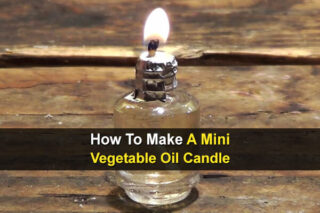Estimated reading time: 7 minutes
There are many reasons people choose to become homesteaders. From enjoying the best fresh tomatoes to getting back in touch with nature, living the simple life can be pretty great. Did you know it can also save you money? Homesteading affords so many opportunities to cut back on your bills and truly enjoy life.
Here are 9 reasons homesteaders spend less.
Want to save this post for later? Click Here to Pin It On Pinterest!
1. Homesteading Can Drastically Lower Your Food Bill
No matter where you live, a great way to start homesteading is by learning to cook from scratch. Buying bulk ingredients instead of ready-to-eat, packaged meals can save you hundreds of dollars a month.
Staple foods you can easily learn to prepare at home include homemade breads, pastas, and crackers, and meals like chilis, casseroles, soups, and sandwiches which are easy to make and healthier than pre-packaged alternatives.
You can also grow some of your family’s food even if you don’t have a green thumb. Try starting with a small garden and choose easy-to-grow plants like cherry tomatoes, peas, and greens. If you live in an apartment, consider looking into a community garden or growing plants in containers.
Whenever you have a surplus, whether it’s from your garden, seasonal deals at the farmers market, or a sale on organic apples at your local store, you’ll learn how to put food up. Food can be dehydrated, frozen, or canned and used later when your garden has slowed down for the season or food prices have gone up.
Wild edibles are another fun way to get your family involved in the process of food and spend less time in the supermarket. Great plants for novice foragers to start with are easily recognized plants like wild raspberries and blackberries. With a good guidebook, some time, and maybe some help from an experienced friend, you can branch out into other wild edibles like greens, wild onions, and mushroom varieties.
2. You’ll Save Tons Of Money On Your Electric Bill
A really simple way to save the environment and some money is to install a clothesline. If it's the middle of winter or you live somewhere outside clotheslines aren’t allowed, there are many affordable drying racks or DIY rack ideas that can be used indoors.
You may also find other ways to save, like updating large appliances or replacing smaller appliances with hand crank versions such as food processors, pasta makers, and coffee grinders. You might also find you enjoy electricity-free days or evenings using candlelight.
A wood stove is another great and affordable option for many new homesteaders and can really bring in big savings. They can be used just for heating, or they can be used to heat water and cook during colder months.
Many homesteaders also choose to install an additional alternative energy source such as a solar system, hydro electric system, or a wind turbine. You’ll be able to create your own energy and may even be able to make a little money if you live in an area that offers energy credits or tax breaks.
3. You’ll Spend Less Time in the Doctor’s Office
Becoming a homesteader will help you lead an active lifestyle. Spending time outdoors weeding the garden, building chicken coops, or tending beehives will improve your mental health and help you burn calories. It’s an enjoyable, fulfilling reason to get off the couch and away from the TV.
You’ll also eat healthier. Whether it’s grown by you or purchased at a farmer's market, odds are you’ll eat more organic food. By not consuming as many pesticides and other agricultural chemicals, you’ll be less likely to get any serious diseases.
Lastly, you may choose to acquaint yourself with at least a few basic herbal remedies. They can help stave off minor illnesses and keep them from becoming a visit to the doctor.
4. You'll Reduce or Limit Your Waste Management and Shopping Bills
Homesteading means reusing, recycling, and cutting back on disposable products. Simple things like cooking from scratch, putting up food in mason jars, and mending clothing can greatly reduce the amount of trash your family creates.
Another great way to reduce your waste is through composting your family’s food scraps. Composting is really simple and can be done without a lot of smell or mess, and it helps keep your garden healthy and productive.
You may also learn to upcycle junk and make things your family needs. Homesteaders are a creative bunch, so there are tons of great ideas available, from using pallets as garden fencing to turning old tires into chicken dust baths. Whatever you need, you can probably find a way to make it cheaper and greener.
5. You’ll Reduce Your Water Bill
The simplest way is to reduce your water consumption and recycle the water you do use. Homesteaders often use grey-water systems where water from the sink and shower that would normally go into the septic is instead used for the garden.
Depending on where you live, you may also be able to gather some of your own water by installing rain barrels or digging a well.
6. You’ll Save Money On Cleaning, Beauty, and Personal Hygiene Products
Don’t worry, being a homesteader does not mean giving up these things! However, you can learn to make a lot of these products from scratch. Ideas include eyeliner, toilet cleaner, toothpaste, and soap, just to name a few. All of these homemade versions will be better for your budget, your health, and the environment. Say goodbye to products with harsh chemicals and say hello to savings.
7. You’ll Spend Less Money On Clothing
You can learn simple skills like darning, which can save favorite socks and sweaters from the trash. You can also learn how to sew and knit in order to create your own wardrobe. You can also save money by utilizing thrift stores and clothing swaps for additional clothing needs.
8. Your Entertainment Budget Will Shrink
This could mean anything from going out to dinner less and cooking more at home, to ditching your cable bill in favor of movies from the library and family game nights. There are also many practical and fun hobbies that anyone can learn. These including spinning, knitting, crocheting, sewing, blacksmithing, and woodworking. Who knows, you may even start making money from your crafts!
9. You’ll Spend Less On Transportation
As you become more self sufficient, you’ll spend less time running errands and less money on gas. There will be no need to make weekly trips to the grocery store when your pantry is well stocked and your garden is full of fresh produce. You’ll probably also find yourself doing things like building new shelves or sewing a new shirt rather than driving to the mall to purchase them.
Another way you can increase your self sufficiency is by learning basic vehicle maintenance and repair. Start with something simple like an oil change and check out some Youtube videos or find a friend with some experience. It’s not as hard as you think!
As the rest of your life becomes simpler and more eco-friendly, you may decide on a greener vehicle/transportation option. In rural areas you could shop for hybrid or compact cars, and in urban areas you could use a bike or take public transportation.
If you’re considering jumping on the homestead band wagon, keeping these nine reasons in mind can keep you motivated as you take steps toward a simpler life.
Like this post? Don't Forget to Pin It On Pinterest!











